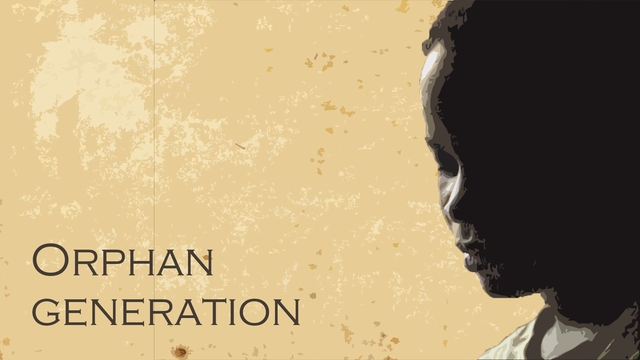Orphan Generation
The AIDS crisis in Uganda is producing more orphans that ever
 There could be as many as 15 million children world-wide who have lost one or both parents through AIDS. This film covers the struggle of one Ugandan village to cope with the growing number of AIDS orphans; a generation of children who are also losing their land rights and education.
There could be as many as 15 million children world-wide who have lost one or both parents through AIDS. This film covers the struggle of one Ugandan village to cope with the growing number of AIDS orphans; a generation of children who are also losing their land rights and education.
Grief is not the only legacy of AIDS. Here in Rakai one child in eight is an AIDS orphan, growing up without parental love and guidance. In the past, relatives took over the responsibility of looking after orphans, but so many have died in such a short time that children find themselves entirely alone.
14 year old Veronica is now the head of her family. Their once well-cultivated land is being taken over by bush. Their first two crops were stolen, so they harvest the third crop of coffee and sorghum themselves. The children risk losing their land if they leave the parental home. Desperate as it seems, fending for themselves is their best option - so they can stay together. Veronica gets them up and baths them. "When dad was alive we never got desperate". They, like many others, are thrust into an adult world of hard toil, or begging. But this is little compared to the grief of watching their parents die.
Jospehine is in her sixties single-handedly raising her 25 grandchildren; she has buried all five of her children, who would normally have supported her into old age. "I struggle with them during the night and during the day", she says. Others go to the city to begin a new life - as street children. "Once I didn't eat for four days, so I went to the rubbish tip and ate", says George. They dig latrines and carry rubbish to earn a crust, but often they don't get paid. Surviving on bravado, they have to choose between crime and starvation.
But new children's homes have sprung up. Many of Uganda's war children grew up in orphanages. But all agree they are a drop in the ocean, and institutionalise children so they cannot fend for themselves when they have to leave. Orphanage directors plead with the child welfare department about overcrowded conditions. If they are lucky, village councils register their newest orphans; aid agencies pay their school fees. Others are taught handicrafts.
We follow mobile health teams as they visit the sick in their huts. Communities are struggling to cope, but this film shows the vital energy villages do possess to deal with their orphans. Parents facing death have a race against time to pass on their most valuable skills to their children. Gerard is being taught to make beer by their dying father. By teaching children to become blacksmiths or tailors, orphans can be taught to survive.
This sensitive film gets to the very heart of the crisis sweeping the African continent, and highlights intelligent ways of alleviating the orphans' struggle. The hope is that in the long term, these teenagers will grow up with different attitudes to the sexually transmitted disease and enlighten their own children.
FULL SYNOPSIS
Produced by Small World
